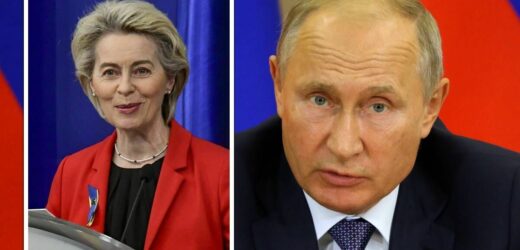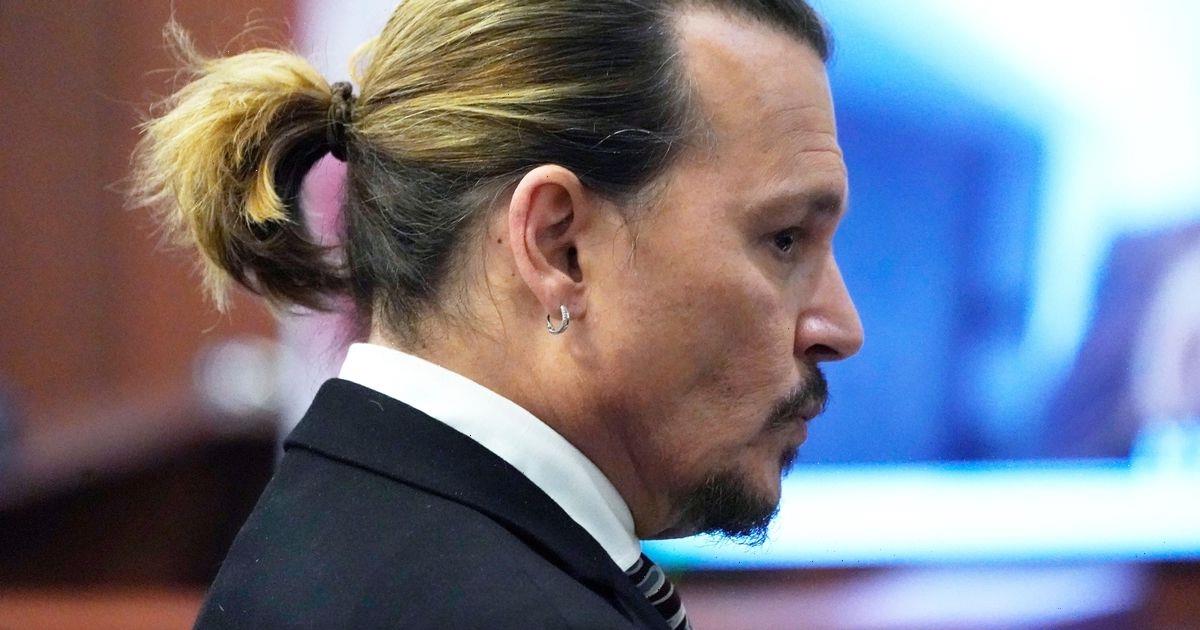Former Putin advisor slams Europe for using Russian oil on LBC
We use your sign-up to provide content in ways you’ve consented to and to improve our understanding of you. This may include adverts from us and 3rd parties based on our understanding. You can unsubscribe at any time. More info
The bulk of the bloc’s infighting is taking place over Europe’s heavy reliance on Moscow for vital gas and oil supplies – but experts are calling time on the EU’s failure to deliver adequate help to war torn Ukraine. John R. Bryson, Professor of Enterprise and Economic Geography, has claimed the EU is placing its own economic and trade interests over the lives and welfare of Ukrainians caught in the war’s crossfire.
Professor Bryson said: “I have argued that a structured approach to sanctions should be applied that includes all Russian businesses, financial interests and infrastructure, educational, sporting, cultural, and travel activities.
“This list should also have included any individuals directly or indirectly linked to the Russian side of the conflict including the Russian oligarchs and their families.
“Everyday Russia’s military campaign is supported by revenue flows linked to the sale of gas and oil to European consumers.
“In 2021, EU energy imports from Russia were worth $108 billion (€99 billion).

“Since the start of Putin’s ignoble war, the EU has provided more funding to Russia than it has provided to support Ukraine.”
According to Josep Borrel, the EU’s own foreign policy chief, the bloc has given €35 billion (£29.1 billion) to Russia for energy supplies since the start of his war
In comparison, he said the EU has only given €1 billion to fund defence in Ukraine, as of April 6.
Mr Borrel said: “€1 billion is what we pay Putin every day for the energy he provides us.

“Since the beginning of the war we have given him €35 billion.
“Compare that to the €1 billion we have given to Ukraine in arms and weapons.”
Poland and the Baltic states have called for wide-ranging sanctions on the Kremlin’s oil and gas sectors, but have faced resistance to immediate action from Germany, Austria and Hungary.
The EU imports some 41 percent of its gas and 27 percent of its oil from Russia, but these figures are much higher in some member states, such as Hungary and Austria.
DON’T MISS
Putin’s nightmare exposed as thousands of Russians flee [INSIGHT]
Is the EU allowing Russia to evade sanctions? [ANALYSIS]
UK and EU food prices compared: How much YOUR weekly food shop costs [EXPLAINER]

Germany in particular has been criticised for failing to deliver enough punishment to Russia for the war.
President Zelenksy said last week that the EU was prioritising “blood money” over the lives of his people and the bloc’s failure to act has now become an issue of “survival”.
He said: “We don’t understand how you [EU] can make money out of blood.
“Unfortunately, this is what some countries have been doing. European countries.
“For example and I’d like us to be frank, for example the oil embargo is I think one of the key issues which we know has been blocked by Germany and Hungary among European countries.
“And we need to talk together with these countries on how it’s possible for there to be different attitudes to this issue of the oil embargo within the European Union.
“Some of our friends and partners understand that it is a different time now, that it is no longer an issue of business and money. That it is an issue of survival.”
Dr Bryson continued: “Now is the time for the European Commission, and all member states, to accept that it no longer possible for Europeans to continue to rely on Russian gas and oil.
“European citizens, businesses and economies would experience major detrimental impacts, but it is becoming increasingly difficult for any one country to continue to provide Russia with indirect support for its military campaign.
“How does one balance rape, death, forced relocation, mass murder from indiscriminate shelling and war crimes against the difficulties that would result from no longer being able to consume Russian gas and oil?”
Source: Read Full Article

